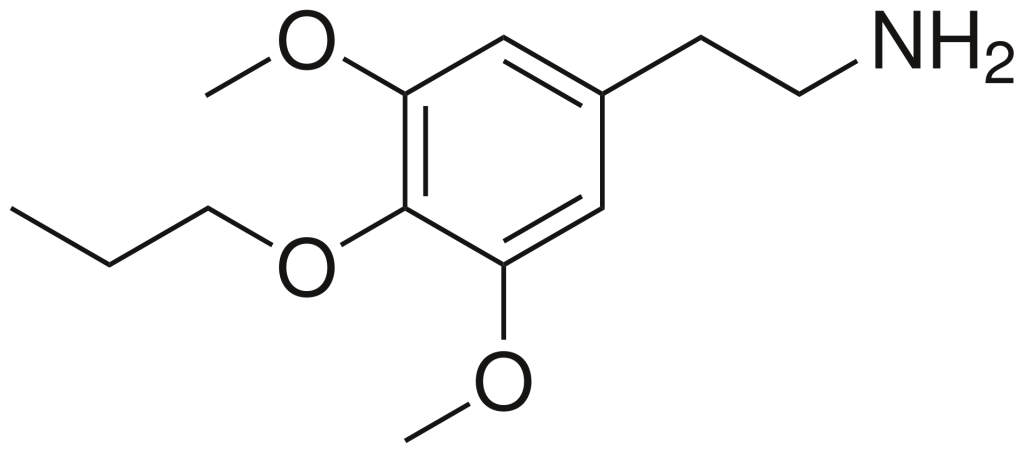Beautiful Plants For Your Interior
Summary
Proscaline, also known as 4-propoxy-3,5-dimethoxyphenethylamine or 4-propoxy-3,5-DMPEA, is a substance with psychedelic and hallucinogenic properties. It shares structural similarities with mescaline, isoproscaline, and mescaline.
According to Alexander Shulgin’s account in PiHKAL (Phenethylamines I Have Known And Loved), a dosage of 30 to 60 mg is associated with effects that endure for approximately 8 to 12 hours.
| Identifiers | |
|---|---|
| CAS Number | 39201-78-0 [EPA] |
| 3D model (JSmol) | Interactive image |
| ChEMBL | ChEMBL340765 |
| ChemSpider | 10439596 |
| PubChemCID | 15102790 |
| UNII | 99G781N5IO |
| CompTox Dashboard(EPA) | DTXSID00192454 |

Chemistry
Proscaline falls within the category of compounds referred to as phenethylamines. It is the 4-propoxy homolog of mescaline, with its complete chemical name being 4-propoxy-3,5-dimethoxyphenethylamine.
Legality
In the United Kingdom, Proscaline is classified as a Class A controlled substance.
On the other hand, in the United States, Priceline is not subject to specific scheduling or regulation. However, it could be categorized as an analog of mescaline, a Schedule I drug, under the Federal Analog Act. This means it could be subjected to similar control measures and legal penalties for possession and manufacture as a Schedule I drug.
FAQ
1. What is Proscaline?
- Priceline is a psychedelic and hallucinogenic substance belonging to the phenethylamine class of compounds.
2. What are the effects and duration of Proscaline use?
- The effects of Proscaline are reported to be psychedelic and hallucinogenic. The duration of its effects typically lasts around 8 to 12 hours.
3. How is Proscaline typically consumed?
- Proscaline is often taken orally, with dosages varying based on individual preferences and tolerance levels.
4. Is Proscaline legal in the United Kingdom?
- No, Proscaline is classified as a Class A controlled substance in the United Kingdom.
5. What is the legal status of Proscaline in the United States?
- In the United States, Priceline is not scheduled or regulated. However, it could be treated as an analog of mescaline under the Federal Analog Act, making it subject to similar control measures and penalties.
6. Are there any known risks associated with Proscaline use?
- As with all psychedelics, there are potential risks associated with Proscaline use, including psychological distress and adverse effects. Responsible and informed use is essential.
7. Can Proscaline be used for therapeutic purposes?
- There is limited research on the therapeutic potential of Proscaline, and it is not approved for medical or therapeutic use. Other psychedelics, like psilocybin and MDMA, have been more extensively studied for therapeutic applications.
8. Is Proscaline addictive?
- The addictive potential of Proscaline is not well understood. It is generally considered to have a lower risk of physical dependence compared to substances like opioids or stimulants. However, psychological dependence can still occur.
9. Where can I find more information about Proscaline?
- Given the evolving legal and scientific landscape surrounding Proscaline, it’s crucial to consult reliable sources of scientific literature and seek advice from healthcare professionals. Staying informed and making well-informed decisions is essential when considering the use of this substance.